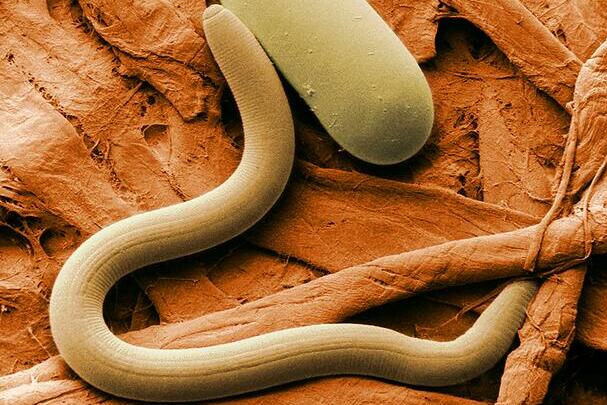Illinois farmers: Take advantage of free nematode testing program

URBANA, Ill. — Illinois farmers can now sample their fields for soybean cyst nematode (SCN) at no cost, thanks to the Illinois Soybean Association (ISA) and the Plant Clinic, a service of University of Illinois Extension, part of the College of Agricultural, Consumer and Environmental Sciences (ACES) at the University of Illinois Urbana-Champaign.
“This program could save producers hundreds of dollars,” said Nathan Schroeder, associate professor and faculty Extension specialist in the Department of Crop Sciences in ACES. “And more importantly, we’re hoping it will motivate producers to sample their fields to better guide their management decisions.”
Soybean cyst nematode is the most important pathogen affecting soybeans throughout the Midwest, Schroeder said. But because these organisms are microscopic, occur belowground, and cause nondescript symptoms, laboratory testing is required to identify both the nematodes and the scale of the infestation.
“Even though you may have tested for SCN in the past, populations may be increasing because SCN has learned how to adapt to the [PI 88788] genetic source of resistance that farmers have been using over the past 30 years,” said Stephanie Porter, outreach agronomist with ISA. “I would encourage Illinois farmers to take advantage of this opportunity because gathering data from across the state is crucial to identify exactly where SCN is attacking and to quantify its impact on soybean crops. This research may lead to new ways to overcome resistance in the field.”
Historically, samples cost $25, plus shipping.
“We tell farmers, if you have lots of fields, you can't just take one sample and assume that it represents all of their fields. You can make generalizations within a 5-acre area, but beyond that, you need to take multiple samples,” Schroeder said. “So, with large acreages, testing can represent a significant cost.”
The Illinois Soybean Association is covering the cost of tests and shipping for Illinois farmers through August 31, 2024. Farmers should contact freeSCNtesting@illinois.edu for a free sampling kit, which will include instructions on sampling and how to receive free shipping for the samples.
Diane Plewa, the director of the Plant Clinic, said she hopes farmers will take advantage of the program and she anticipates there will be a larger-than-normal demand for SCN tests.
“Really, we're hoping it's so successful that this could turn into a longer-term project,” Plewa said. “But for now, we're just thrilled it’s happening this year and are hoping for a really good response.”